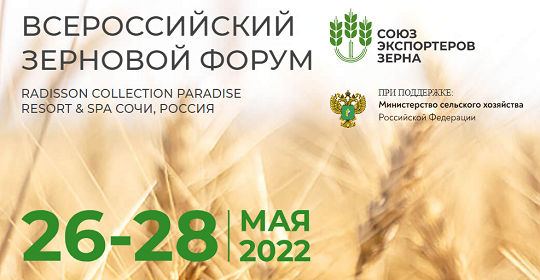Lower yield forecasts are pushing the processor union to seek any measures to limit seed exports.
The Fat and Oil Union proposes to introduce new restrictions.
The initiative from the Ministry of Agriculture to the Ministry of Agriculture is as follows: to deprive the companies that received state support for agricultural production in the last calendar year of the opportunity to export sunflower.
This should exclude the practice of indirect subsidizing of foreign processors at the expense of the Russian budget.
And the provision of state support allows you to get an additional margin for export.
Foreign processors, protecting their domestic processing market, increase import duties on products such as vegetable oil and meal, and lower duties on the import of raw materials.
The Fat and Oil Union believes that in Russia it is necessary to introduce a complete ban on the export of sunflower, because 70% of the processing capacities in the country are not loaded.
Taking into account the decline in this year’s harvest, the figure will decrease to at least 66%.
The Russian Grain Union criticized the initiative because it would deprive small businesses of the ability to export, and small businesses in the country account for 30% of sunflower production.
At the same time, as a rule, small enterprises are not directly exporters.
As an alternative, RZS and the Ministry of Agriculture propose to introduce permissive exports through exchange trading.
This should ensure transparent pricing and open competition. In addition, mechanisms for hedging price risks will appear.
The Oil and Fat Union, according to the Russian Grain Union, could become the organizer of the oilseeds futures trade on the stock exchange starting from the new year.
Presumably, a prerequisite for obtaining an export permit will be sale through the exchange.
Moreover, the bidder should not have debts in taxes, fees and other obligatory payments, not be in the process of liquidation, not be declared bankrupt, bankruptcy proceedings should not be opened against him.
At the same time, processors will also participate in tenders, which will additionally add stability to the market.
And in the context of the possible introduction of restrictions on the export of raw materials and an increase in export demand in this regard, trading through the exchange will become an additional factor in supporting prices.

Now the price formation is influenced by export demand, and the decline in sunflower harvest in the countries that are the largest exporters (Russia and Ukraine), and the devaluation of the ruble.
All this ultimately leads to an increase in prices for the final product in retail, which is included in the basket of socially significant goods.
To date, domestic prices for sunflower oil have reached a record high: + 6.6% (74,175 rubles per tonne).
Sunflower oil for export, in turn, rose in price by 3.78% to $ 960 per tonne (delivery — FOB).
Even those processors who tried to reduce the price of raw materials, arguing that they had sufficient reserves, raised it by 2–4 thousand rubles per ton in the second half of last week.
According to experts, the rise in prices in the sunflower market will continue against the background of unprecedentedly high prices for oil and an increase in purchases by processing enterprises.
The strengthening of the ruble and the decline in world prices for palm and soybean oil may be a factor that may contain this trend.

